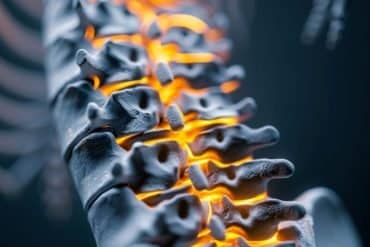Binge-eating in teenagers may be linked to a gene variation, according to new research from the University of Queensland.
The UQ Diamantina Institute’s Professor David Evans and a University College London Institute of Child Health team have analysed data from 6000 adolescents aged 14 and 16 and found that genetic variations associated with obesity risk could also predict binge-eating.
Professor Evans said finding the gene variation could lead to a better understanding of why young people developed binge-eating tendencies.
“In the future it may also help us create strategies for identifying at-risk teenagers before they get to the stage where they are overweight or obese and face the many health problems associated with these issues,” he said.
“About 10 per cent of adults and teenagers binge-eat, which we define as excessive over eating with a lack of control over what they are eating.
“While it’s known that a combination of genetic and environmental factors lead to eating disorders, until now there has been limited research into how specific genes increase the likelihood of binge-eating behaviours in adolescence that can lead to obesity.”
The researchers found that if a young person had a particular variation in the location of the FTO gene, they were between 20 per cent and 30 per cent more likely to binge-eat.

Professor Evans said the pattern was particularly evident in girls, who were 30 per cent more likely to binge eat if they had the variation.
“It’s still early days in the research but we’re getting a better understanding of how these behaviours come about.
“It’s very complex because the tendency to binge is a behaviour influenced by many different genetic and environmental factors.”
Funding: This work was supported by the Medical Research Council MC_UU_12013/4. DME is funded by an Australian Research Council Future Fellowship (FT130101709). The UK Medical Research Council and the Wellcome Trust (grant refs: 092731 and 102215/2/13/2) and the University of Bristol provide core support for ALSPAC. 23andMe funded the generation of the ALSPAC GWA data. This research was funded by a National Institute of Health Research (NIHR) clinician scientist award to Dr N Micali (DHCS/08/08/012). The views expressed in this publication are those of the author(s) and not necessarily those of the NHS, the National Institute for Health Research or the Department of Health. This work was partly conducted in the Medical Research Council Integrative Epidemiology Unit, a research unit supported by the Medical Research Council (MC_UU_12013/4).
Source: David Evans – University of Queensland
Image Credit: The image is credited to NeuroscienceNews.com
Original Research: Abstract for “Are obesity risk genes associated with binge eating in adolescence?” by Nadia Micali, Alison E. Field, Janet L. Treasure and David M. Evans in Obesity. Published online July 20 2015 doi:10.1002/oby.21147
Abstract
Are obesity risk genes associated with binge eating in adolescence?
Objective
Cognitions and behaviors characteristic of binge eating are associated with a polymorphism in the FTO gene, robustly related to body mass index (BMI) and obesity risk. We investigated the association between binge eating and the individual and combined effect of 32 SNPs robustly associated with BMI in a population-based sample. We hypothesized that higher BMI and binge eating might share a common genetic etiology.
Methods
Binge eating was assessed in adolescents from the Avon Longitudinal Study of Parents and Children at age 14 (n = 5,958) and 16 years (n = 4,948). We tested associations between 32 BMI-related SNPs and binge eating in crude and BMI-, age-, and gender-adjusted regression models.
Results
Crude analyses showed an association between binge eating and rs1558902 (FTO) that persisted after adjustment for BMI (OR = 1.20, P = 8 × 10−3). A weighted allelic score consisting of all 32 BMI-related SNPs was associated with binge eating (P = 8 × 10−4); this association attenuated (P = 0.08) when rs1558902 was removed from the weighted allelic score.
Conclusions
BMI-related genes are associated with adolescent binge eating, in particular an FTO polymorphism. Although replication is needed, our findings have biological plausibility and are consistent with a postulated effect of FTO on appetite and food intake. Future studies should aim to understand the mechanisms underlying the relationship between FTO, binge eating, and obesity.
“Are obesity risk genes associated with binge eating in adolescence?” by Nadia Micali, Alison E. Field, Janet L. Treasure and David M. Evans in Obesity. Published online July 20 2015 doi:10.1002/oby.21147






